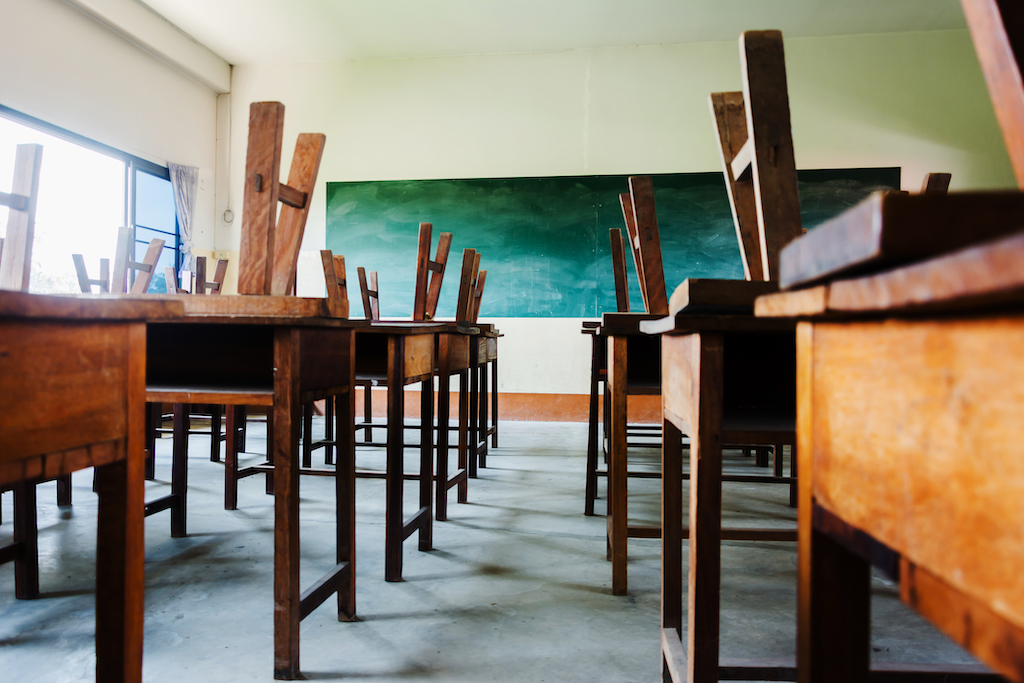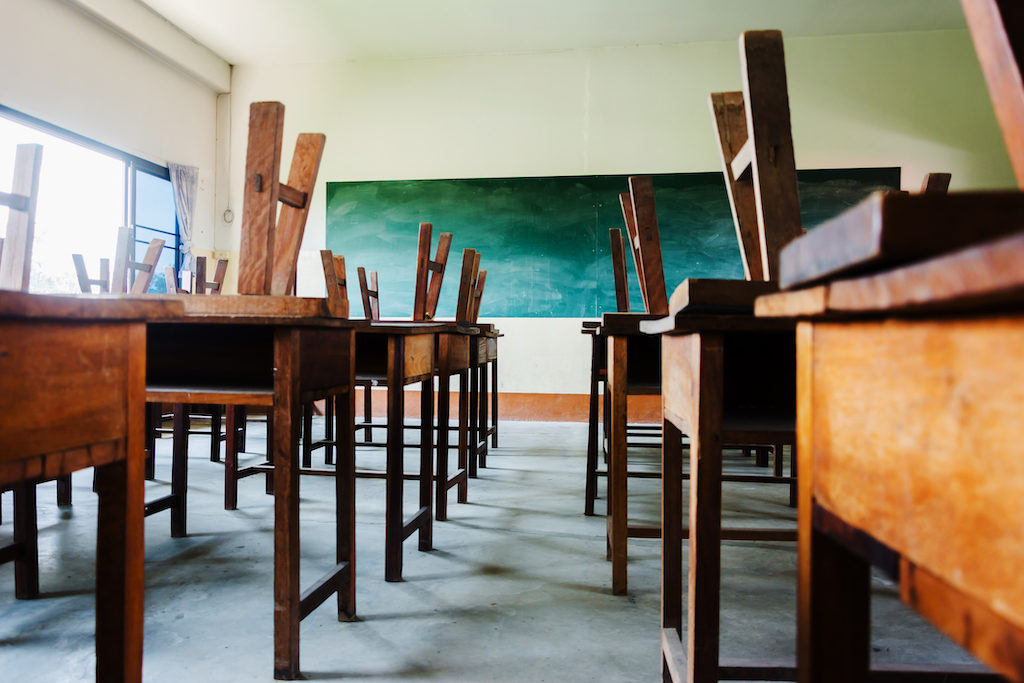Schools and Coronavirus: what pupils think
By School House
5 years ago

Alex Bloom-Davis mulls over schools and coronavirus, asking what do pupils think?

© gettyimages
There has been an enormous amount of coverage in the mainstream media and on social media regarding the subject of schools and coronavirus: school closures and the exam cancellations are the current educational watch words. We have also heard many fantastic reports from schools on what measures they are putting in place to ensure business can continue (as far as possible) as normal, carrying out the duty of educating the children in their charge.
But what do the pupils affected have to say about schools and coronavirus? It is all very well schools sharing pictures of smiling pupils, learning remotely via Zoom, but what do they actually think about the new lifestyles they have had to quickly adapt to? School House has asked several pupils to give their perspective on what is going on, and how the COVID-19 crisis is really affecting them.
The shocking news for pupils came on 20 March, when the Government made its announcement regarding schools and coronavirus: all schools have been closed (children of key workers are exempt from this rule) and with this, exams are cancelled, as part of the measures to delay the spread of COVID-19. Tilly, age 18 and in her final year at Sherborne Girls in Dorset, said she is ‘sad that school has closed’. This sentiment was shared by Christa, also in upper-sixth at Sherborne Girls. ‘The announcement of school closures and exam cancellations was a huge shock to everyone at school, but particularly the upper-sixth,’ Christa says. She explains that she was ‘devastated to hear the chances of us going back to school before the end of the summer term were small, as it felt as though my school career had ended abruptly and many of us felt that we had been cheated of the sense of achievement we were expecting after our exams.’

For Christa, the cancellation of her A-levels left her feeling she didn’t have the chance to prove her academic prowess: ‘My work throughout the past two years was inconsistent and only started to improve in the last few months.’ All of Christa’s hard work was coming together in time for the Easter holidays and the final push before she sat her A-levels. ‘I feel that my results – which will be based on teachers’ assessments – might not be as strong as they could have been had I had the opportunity to take the exams.’
Christa does admit, however, that this feeling is not shared by all of her year group, saying grades based on teacher assessments have received something of a ‘mixed reaction’. Indeed, although saddened by not being able to complete her final school year, Tilly is generally happy that her exams have been called off. ‘For me, exams are not the be all and end all,’ she explains. ‘I think that too much emphasis is put on exams, driving students to exert themselves, sometimes to unhealthy extents. The fact that exams can be – and actually have been –cancelled proves the attention placed on them is unwarranted.’ For Tilly, the two years of work she has undertaken is a far more ‘reasonable analysis of [her] abilities’ than ‘having the standard six hours’ worth of exams per subject’.
Oriole, age 17 at Godolphin School, Salisbury, recounts the reaction of her classmates when the strict government measures were announced to tackle COVID-19: ‘It was really surreal being gathered around a phone listening to Boris Johnson telling members of our class we weren’t going to be sitting our exams and watching one melt into a small mental breakdown while the other started laughing hysterically.’ Being in lower-sixth, Oriole will go back to Godolphin to complete her final year when the social distancing measures are lifted, but she admits she ‘can’t imagine how frustrating it must be for [the upper-sixth] to leave a school they love so much without any reassurance for their future, or verification of whether they can burn their revision notes yet.’
Although end of year exams are cancelled, the schools of course still have a duty to teach the pupils who are not scheduled to leave at the end of the year. Remote classes, while anything but normal, are now commonplace for most pupils around the UK. Oriole tells us that communication is not a problem – the Prime Minister is still able to govern the country from quarantine due to the excellent technology at our disposal, after all. Although we have tools such as Zoom and Microsoft Teams, ‘most of the students can agree that it’s a lot harder to concentrate at home than at school,’ says Oriole. She goes on to say it is especially testing ‘trying to maintain a routine schedule when the rest of the family are in the next room, playing a heated game of monopoly. There’s definitely a lack of motivation.’
For those pupils in upper-sixth, lessons were coming to their organic end before the schools were closed, as post-Easter holidays the emphasis is on revision for A-levels. Although Sherborne Girls is of course providing virtual lessons for the younger years, Christa says she is not schooling from home because, as an upper-sixth former, she has not been set any work. Tilly adds, contrary to some of her teachers’ wishes, she doesn’t see the point of studying from home when her exams have been cancelled. ‘I am very passionate about languages, which make up three of my four subjects, and I am therefore confident I will sustain my knowledge and learning in them independently,’ Tilly explains. ‘I have been doing what I do at home anyway; watching films and reading books and articles in the languages I am studying.’
For Christa, Tilly and Oriole, the thing they miss the most about school is the same: seeing their friends every day. No doubt, this is the mood shared by everyone else in quarantine – I know I can certainly sympathise with this thought. ‘I would do anything to go back to school, even for a week next term,’ laments Christa. ‘I feel that the upper-sixth throughout the country have missed out on everything we have been working towards.’ Summer holidays, post-exam parties, festivals and school-leaver group trips to far flung destinations are all in limbo for pupils across the country. Rites of passage that generations of pupils have indulged in over the summer holidays now seem to be nothing but specs on the horizon, specs that school children long for jealously from a far.

© gettyimages
The measures brought in (which, let us be in no doubt, are to protect the NHS and save lives) have resulted in a rollercoaster of emotions for all of the country’s school pupils. They have been left with, largely, uncertainty, a sense of missing out and a lack of inner fulfilment. At the moment, schools and coronavirus are intrinsically linked, but I am confident, however, that all of our school children who are sufficiently driven to achieve will still soar when all of this is over, and their achievements, despite being wrenched out of school, will be all the more impressive as a result.
Simply Learning Tuition explains the top reasons it is important to keep learning during school closures and exam cancellations. Find out more here



